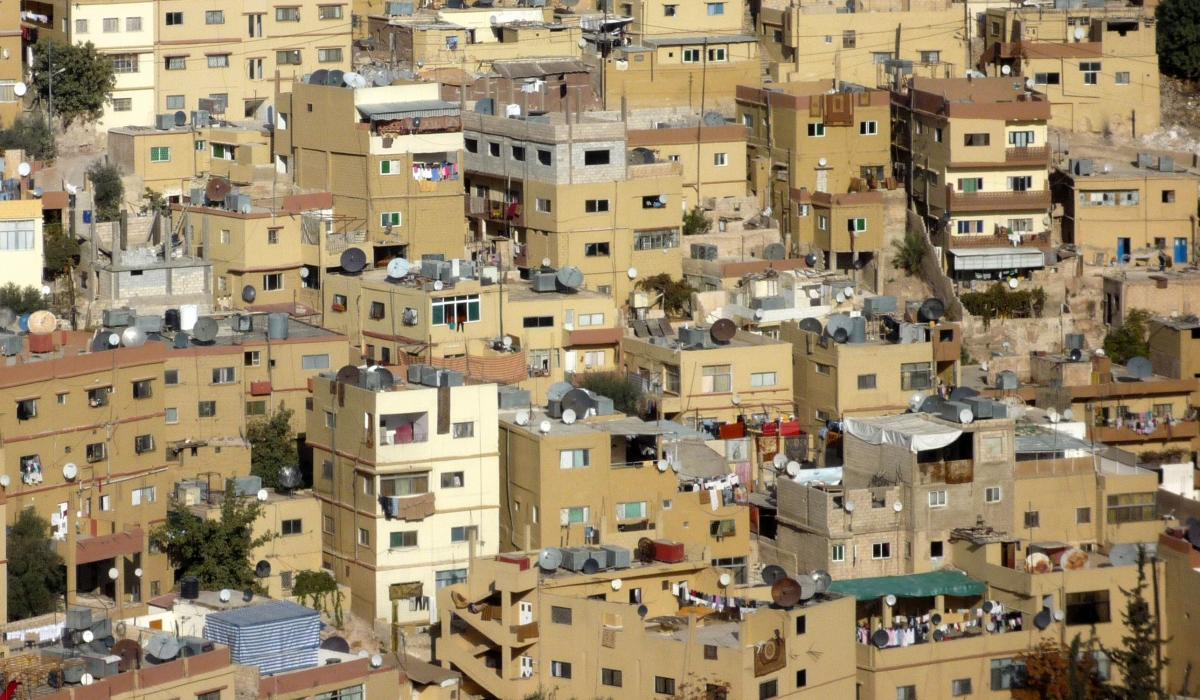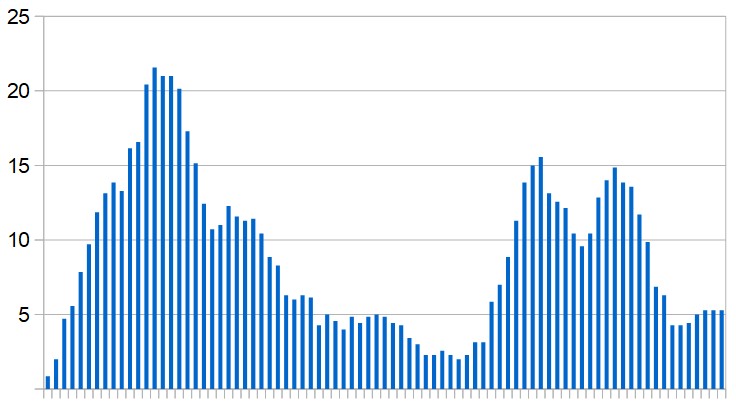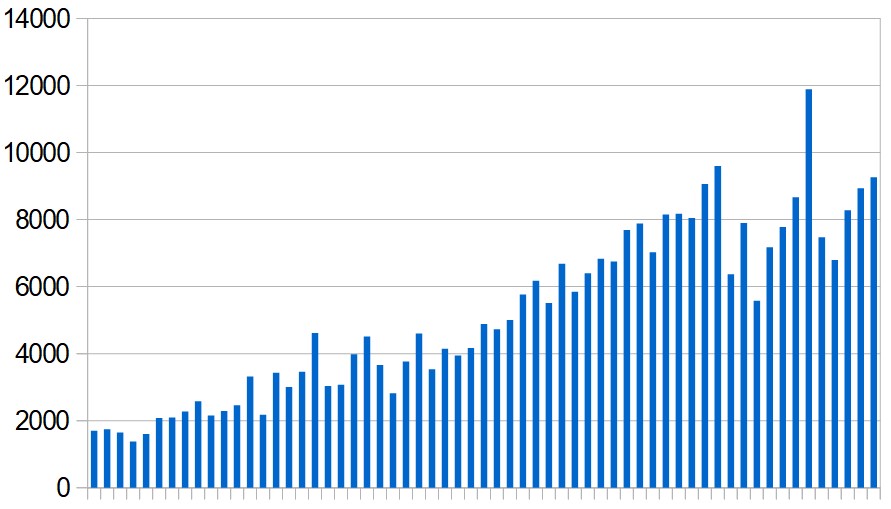
Life in Jordan will look much more normal from Saturday. Cafes, restaurants, hotels, mosques and churches previously closed to due coronavirus will be allowed to reopen along with sports clubs, nurseries and tourist sites.
Shops will be permitted to stay open until 11pm and the night curfew will shrink to just six hours, starting at midnight.
CLICK HERE to jump to Middle East updates
Public transport between cities will resume, though at 50% capacity, and private vehicles can use the roads every day, no longer alternating between odd and even licence numbers.
However, this still leaves restrictions on various kinds of social, cultural and educational activities. Schools and colleges remain closed, along with wedding halls, cinemas, parks and play areas. For the time being, people over 70 or with chronic health conditions must also stay put.
The justification for these latest moves is that Jordan has met the criteria for lowering the country's official Covid-19 risk level to "moderate" – defined by having fewer than 10 locally-generated new cases over a period of seven consecutive days.
The key part here is "locally-generated". Jordan has actually recorded 37 new cases during the past week but 29 of those were among people arriving in the country and quarantine arrangements should ensure that they don't infect anyone else.
That leaves eight locally-generated cases – two below the official threshold. A further encouraging sign is that none of these local cases came as a total surprise: they were all contacts of people previously known to be infected.
That doesn't guarantee there won't be further surprises but Jordan looks well placed to contain any new local outbreaks before they have a chance to spread widely.

Middle East updates
New cases
A further 12,838 Covid-19 infections have been reported in the Middle East and North Africa since yesterday's update.
For the sixth day running, Iran reported the region's biggest day-on-day increase with 3,574 new cases. This is also the highest daily figure so far recorded by Iran – higher even than during the country's previous peak at the end of March.
The list below shows cumulative totals elsewhere in the Middle East and North Africa since the outbreak began, with day-on-day increases in brackets.
Algeria 9,831 (+98)
Bahrain 13,296 (+481)
Egypt 29,767 (+1,152)
Iraq 8,840 (+672)
Israel 17,562 (+133)
Jordan 765 (+8)
Kuwait 29,921 (+562)
Lebanon 1,306 (+50)
Libya 209 (+13)
Morocco 8,030 (+108)
Oman 15,086 (+1,549)
Palestine 643 (+7)
Qatar 63,741 (+1,581)
Saudi Arabia 93,157 (+1,975)
Sudan 5,714 (+215)
Syria 124 (+1)
Tunisia 1,087 (-)
UAE 37,018 (+659)
Yemen 457 (+34)
TOTAL: 336,097 (+9,264)
Note: Yemen's total includes four cases reported by the unrecognised Houthi government in the north of the country. Palestine's total includes East Jerusalem.

Death toll
A further 192 coronavirus-related deaths were reported in the region yesterday – 59 of them in Iran.
Egypt reported 38 deaths and Saudi Arabia 32.
The list below shows cumulative totals of reported deaths in the region outside Iran, with day-on-day increases in brackets.
Algeria 681 (+8)
Bahrain 21 (+1)
Egypt 1,126 (+38)
Iraq 271 (+15)
Israel 291 (-)
Jordan 9 (-)
Kuwait 236 (+6)
Lebanon 28 (+1)
Libya 5 (-)
Morocco 208 (+2)
Oman 67 (-)
Palestine 5 (-)
Qatar 45 (-)
Saudi Arabia 611 (+32)
Sudan 333 (+19)
Syria 6 (-)
Tunisia 49 (-)
UAE 273 (+3)
Yemen 104 (+8)
TOTAL: 4,360 (+133)
Note: Yemen's total includes one death reported by the unrecognised Houthi government in the north of the country.
CLICK HERE for previous updates
For anyone interested: A spreadsheet documenting the coronavirus cases and deaths reported in the region each day can be viewed here.

 RSS Feed
RSS Feed
